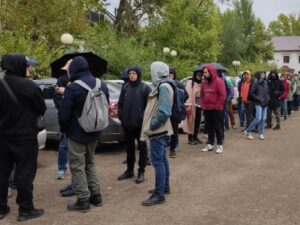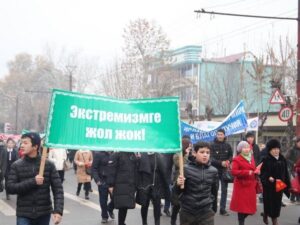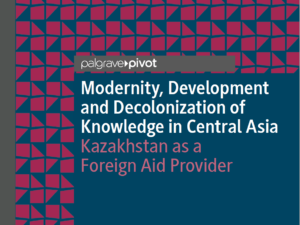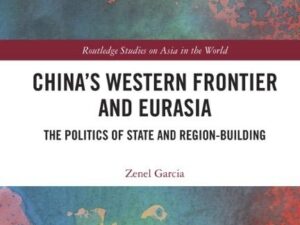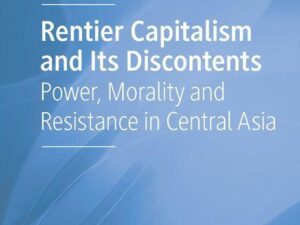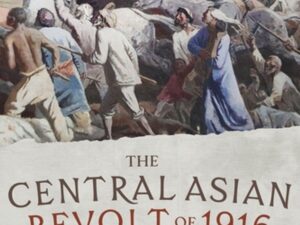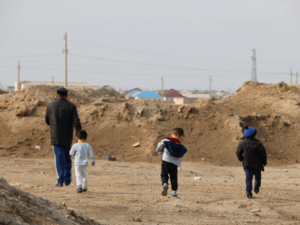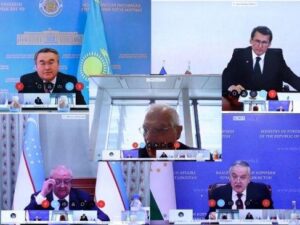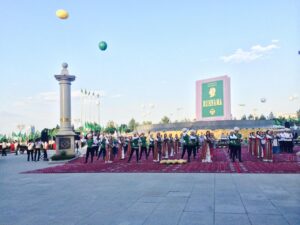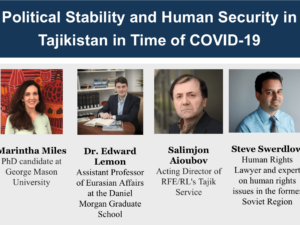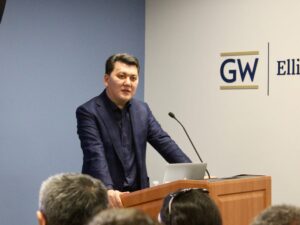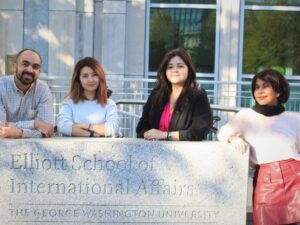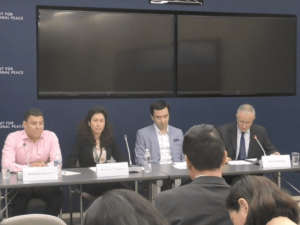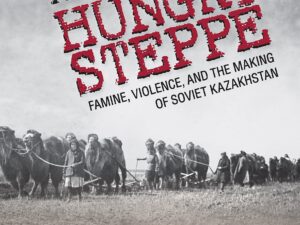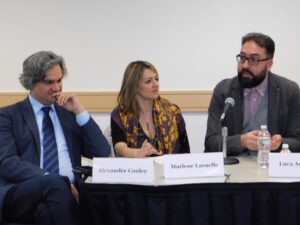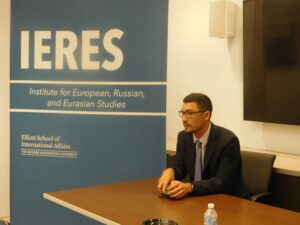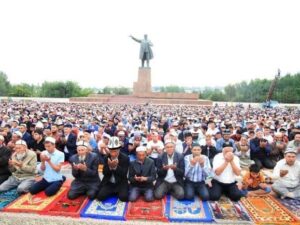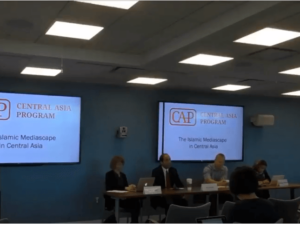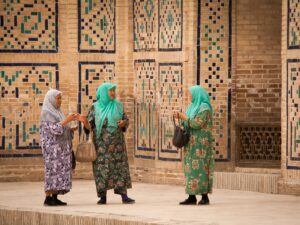
- This event has passed.
Book Launch: March 5 – Slow Anti-Americanism: The Social Movements and Symbolic Politics in Central Asia
5 March, 2021 @ 9:00 AM – 10:00 AM

Slow Anti-Americanism:
The Social Movements and Symbolic Politics in Central Asia
with author Edward Schatz, discussant Emil Nasritdinov, and moderator Marlene Laruelle
Negative views of the United States abound, but we know too little about how such views affect politics. Drawing on careful research on post-Soviet Central Asia, Edward Schatz argues that anti-Americanism is best seen not as a rising tide that swamps or as a conflagration that overwhelms. Rather, “America” is a symbolic resource that resides quietly in the mundane but always has potential value for social and political mobilizers. Using a wide range of evidence and a novel analytic framework, Schatz considers how Islamist movements, human rights activists, and labor mobilizers across Central Asia avail themselves of this fact, thus changing their ability to pursue their respective agendas. By refocusing our analytic gaze away from high politics, he affords us a clearer view of the slower-moving, partially occluded, and socially embedded processes that ground how “America” becomes political.
In turn, we gain a nuanced appreciation of the downstream effects of US foreign policy choices and a sober sense of the challenges posed by the politics of traveling images. By highlighting the role played by symbols, Schatz lays bare how changing public attitudes shift social relations in politically significant ways, considering how changing symbolic depictions of the United States recombine the raw material available for social mobilizers. Just like sediment traveling along waterways before reaching its final destination, the raw material that constitutes symbolic America can travel among various social groups and can settle into place to form the basis of new social meanings. Symbolic America, Schatz shows us, matters for politics in Central Asia and beyond.
Speakers
 Edward Schatz, Author
Edward Schatz, Author
Edward Schatz is Associate Professor of Political Science at the University of Toronto. He recently published Slow Anti-Americanism: Social Movements and Symbolic Politics in Central Asia with Stanford University Press. His previous books include Paradox of Power: The Logics of State Weakness in Eurasia (2017) and Political Ethnography: What Immersion Contributes to the Study of Power (2009). Professor Schatz is currently working with Professor Rachel Silvey on a SSHRC-funded project about the downstream effects of China’s Belt and Road Initiative.
 Emil Nasritdinov, Discussant
Emil Nasritdinov, Discussant
Emil Nasritdinov is an Associate Professor and Graduate Program Coordinator with the Anthropology, Urbanism and International Development program at the American University of Central Asia, Kyrgyzstan. He holds a PhD in Urban Planning from the University of Melbourne, Australia. His main research and teaching expertise areas include migration, religion and urbanism.
 Marlene Laruelle, Moderator
Marlene Laruelle, Moderator
Marlene Laruelle, Ph.D., is Director, Institute for European, Russian, and Eurasian Studies; Director, Central Asia Program; Co-Director, PONARS-Eurasia; and Research Professor of International Affairs at George Washington University. She works on political, social and cultural changes in the post-Soviet space. Marlene’s research explores the transformations of nationalist and conservative ideologies in Russia, nationhood construction in Central Asia, as well as the development of Russia’s Arctic regions. She has been the Principal Investigator of several grants on Russian nationalism, on Russia’s strategies in the Arctic, and on Central Asia’s domestic and foreign policies from the US State Department, the Defense Department, the National Science Foundation, Open Society Foundations, Carnegie Corporation of New York, the Henry Luce Foundation, etc.







